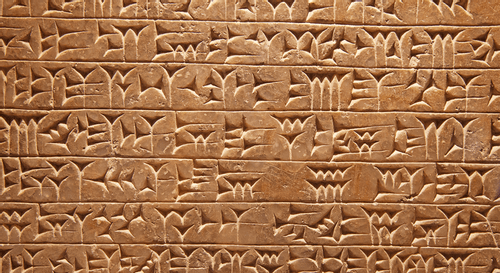Reading, That Strange and Uniquely Human Thing - Issue 94: Evolving - Nautilus
Curated from: nautil.us
Ideas, facts & insights covering these topics:
5 ideas
·2.69K reads
4
Explore the World's Best Ideas
Join today and uncover 100+ curated journeys from 50+ topics. Unlock access to our mobile app with extensive features.
All people read much in the same way
People everywhere read words in a very similar way regardless if it is made from pictures, such as pictographs (Chinese characters), or words made from letters.
This knowledge gives us insight into how writing developed and how we read as well as how we can delve deeper into creativity and communication.
73
830 reads
Writing developed as a response to a need
Some of the earliest writing is from 3000B.C. Mesopotamia. They recorded entries on tablets about the quantities of goods in some kind of bookkeeping.
They wrote down in order to keep account of who delivered what when. But this system was still far away from expressing ideas and writing great works of literature.
68
513 reads
Moving from pictures to the alphabet
- Ancient writing took the leap from drawing a picture as a picture (a logogram) to using it to depict a sound (or phonogram). A "bee" can be used for the sound "be", and when used together with a drawing of a "leaf", they produce the meaning "be-lief."
- But ambiguity arises when we don't know when a bee is a bee, and when is it a sound. Classifiers were added to clear up the confusion. Chinese still uses this system, with pictures, classifier elements, plus phonetics.
- Around 4,000 ago, the alphabet was invented, where symbols only depicted a sound.
70
447 reads
Reading is a complex task
Different areas of the brain are active when we read. We extract visual information that is correlated with sound to get meaning.
Reading does not just involve learning the letters. You have to understand and recognize the words, too. Skilled readers learn to recognize the whole word as a unit and connect it directly to meaning.
75
415 reads
The two systems of writing
Japanese children learn two writing systems: The kanji system is based on Chinese characters, and the kana system is purely phonetic.
- Research shows that the same areas in the brain are activated when reading both types of script.
- There are dyslexic readers in both areas, whether they are reading pictographic Chinese or the phonetic alphabet, suggesting that dyslexia has nothing to do with script.
75
490 reads
IDEAS CURATED BY
Simon I.'s ideas are part of this journey:
Learn more about problemsolving with this collection
How to find purpose and meaning in life
How to cultivate gratitude
Techniques for managing negative thoughts
Related collections
Similar ideas
3 ideas
The Real Way to Improve Your Reading Speed | Scott H Young
scotthyoung.com
6 ideas
How Communication Evolved From Pictures to Letters
thoughtco.com
15 ideas
Read & Learn
20x Faster
without
deepstash
with
deepstash
with
deepstash
Personalized microlearning
—
100+ Learning Journeys
—
Access to 200,000+ ideas
—
Access to the mobile app
—
Unlimited idea saving
—
—
Unlimited history
—
—
Unlimited listening to ideas
—
—
Downloading & offline access
—
—
Supercharge your mind with one idea per day
Enter your email and spend 1 minute every day to learn something new.
I agree to receive email updates

